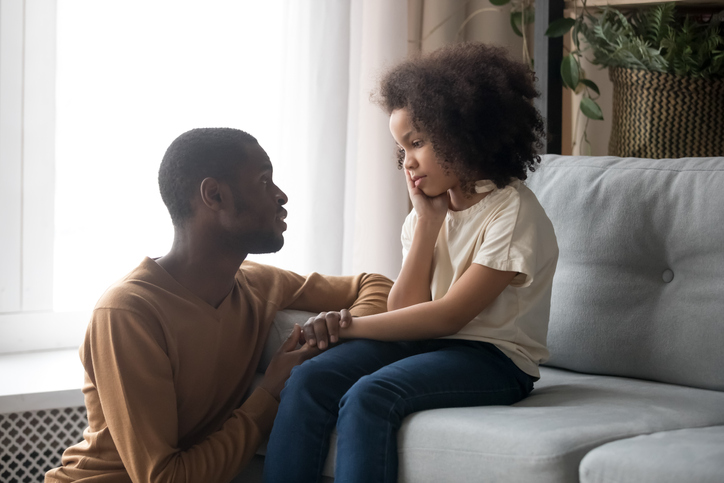
It’s hard to teach kids to apologize well when a lot of us never learned it ourselves. Here’s are some easy ways to get it right – for yourself and when modeling for your kids.
Reminders For Parents
You’re a role model, and you need to walk the walk — all year long, not just at the High Holidays. Let your child see you apologize to your friend when you interrupted her story, to your partner when you forgot to unload the dishwasher, to the receptionist you snapped at, to the dog when you were tardy in refilling his food bowl. Apologize to your kid, too, if you were late for pickup or hurt their feelings by laughing when they said “girl cheese” instead of “grilled cheese.”
Apologizing is a skill, like any other. We learn by doing. We get the hang of tying shoes by … tying shoes. It’s not intuitive. A toddler may not understand why we always wash our hands after using the toilet, but we teach them to do it anyway. A kid may not want to apologize for knocking over a friend’s tower, but we explain, “How would you feel if someone knocked over the bridge you worked so hard on?”
Explain the whys. Mensch-y people don’t apologize just because they got caught. We apologize because what we did was wrong; it affected others; it caused a little fracture in the social contract that makes a healthy society function.
Intent matters less than impact. For older kids, “I didn’t mean to” doesn’t belong in an apology. If we caused hurt, it doesn’t matter that we didn’t set out to. The issue is what we do to make things right. Ask your kid: “How do you think we can fix this?” Help them brainstorm. Let them be a partner in the act of healing.
Six Steps to a Good Apology
Here are six (and a half) simple, foolproof steps that are all you need to deliver a perfect apology every time, whether you’re a kid who broke a rule, a spouse who forgot to put away the folded laundry, a grandparent who made an unkind remark, or a Fortune-500 CEO whose web site was hacked.
-
Say the words “I’m sorry.”
Two little words that are tiny miracles. Don’t say “I regret” or “I feel bad about.” Regret is about how YOU feel; a good apology is about how the other person feels.
-
Say what you’re sorry FOR. Name it.
Names have power. It’s hard to name the hurtful thing you did. But that’s how we show we’re not avoiding responsibility.
-
Show you understand why what you did was hurtful.
Make it clear that you’re not apologizing just because someone made you. Say how the thing you did caused harm. The other person needs to hear that you know.
-
Don’t make excuses.
An apology is not the time to say, “But last week you bit my Barbie’s feet and left tooth marks in her toes!” or “But you made me so mad!” There can be a separate conversation (facilitated by a wise, neutral grownup) in which we talk about how to fix relationship dynamics. Right now, though, just focus on the other person.
-
Explain the steps you’re taking so you won’t do it again.
“I’m sorry I took your beautiful sparkly marker. I know you love it and thought you lost it. Here it is. Next time I’ll ask if I can borrow it.”
-
Make reparations, if you can.
“To make amends for taking the marker, I want to share something that’s special to me with you. Wanna use my neon paints?”
Plus, extra-special BONUS STEP 6-AND-A-HALF: Let the other person have their say. Don’t interrupt. Don’t protest. Everyone needs to feel heard to feel respected.
Look, this is hard! Many adults are bad at it! But doing something hard makes us feel proud of ourselves and helps us feel clean and new. That’s a great feeling. And it’s truly in the spirit of Yom Kippur.
About the Author
Marjorie Ingall is the author of Mamaleh Knows Best and co-author, with Susan McCarthy, of Sorry, Sorry, Sorry: The Case for Good Apologies.
« Yom Kippur Hub
More Blog Posts »
September 19, 2023